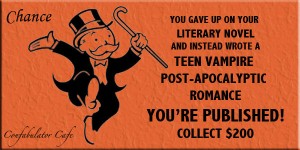My favorite writing advice comes from a writer whose work I don’t enjoy, oddly enough. Or at least he gets credit for it on the writing angel who graces my office wall with her charm. “I love writing. I love the swirl and swing of words as they tangle with human emotions,” states the angel, quoting James Michener, the writer of those gigantic historical fictions that were really popular in the 70s. This reminds me constantly to ask myself, why would my audience care? How are my words entangling with human emotion today? What part of human experience can I capture, what are my characters feeling right now, where is the human element? Answering these questions enlivens fiction and ennobles nonfiction.
However, the very common piece of advice, “Write what you know,” strikes me as the worst advice available. Here’s the problem: Writing what you know turns all writing into life writing, an exploration of the writer instead of an exploration of the world. Certainly life writing can be exciting, good work, work that exposes joys and injustices, that introduces incandescent personalities or unique experiences to a larger audience. But I am uninterested (mostly) in mining my rather dull life for stories. I use writing as a discovery process; I write what I want to know about.
Now, writing does require all my empathy and life knowledge to pull the human emotions into the words. And no one enjoys reading the product of ignorance. By the time a writing project emerges to the world, it should be saturated in knowledge, the product of its author’s learning, research, and imagination. But writing only what you know is an unreasonable limitation, one that asks too much of youth’s ignorance and too little of human capacity to learn and grow, and forces life to be the research for writing–rather than the other way around.


